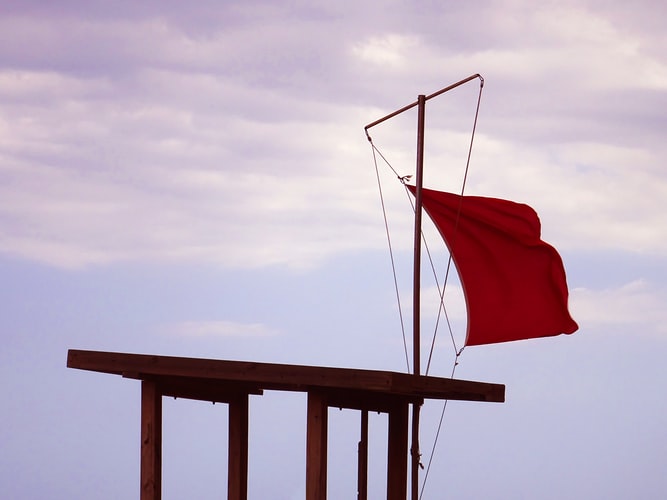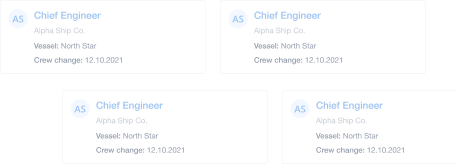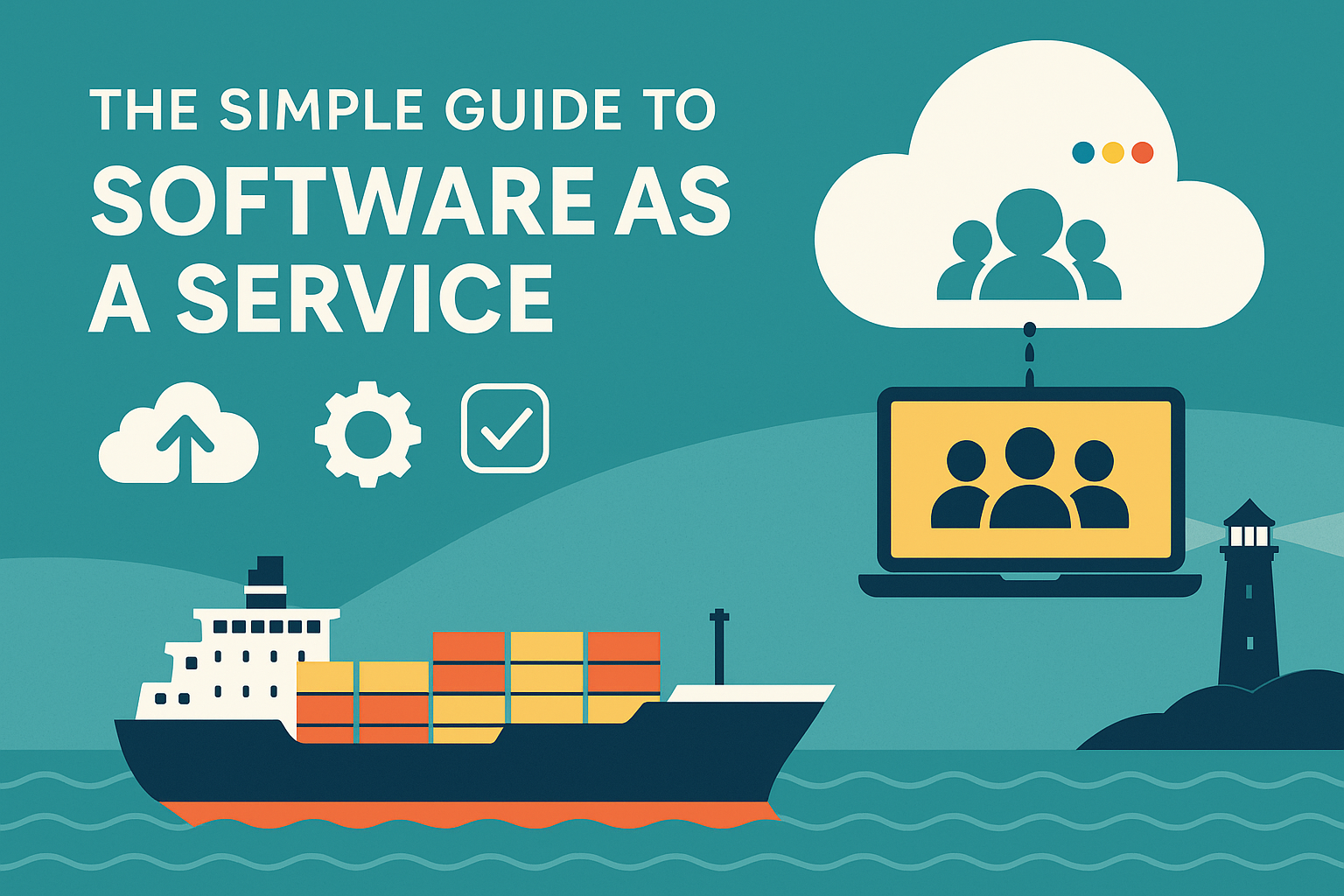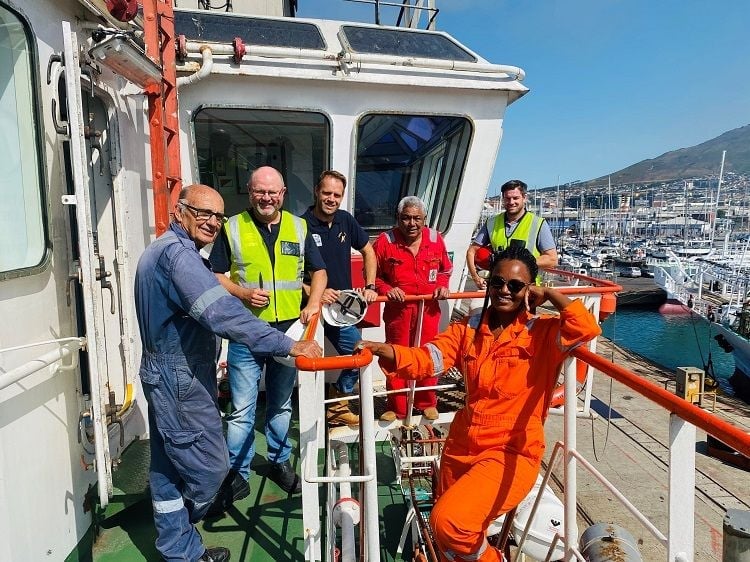5 Tips for Better Maritime Recruitment Interviews

Whether you're a small to medium sized shipowner, crew manager, or a manning agency, we know how stressful maritime recruitment can be. Sorting through numerous seafarer resumes, formulating the right interview questions and selecting the best seafarer for the job.
There are so many different moving parts to maritime recruitment that surely anything you can do to make your life easier is a good thing, right?
Scratch that, it’s a great thing!
And one of those elements of the marine recruitment process is, of course, your job interviews with seafarers.
We’ve talked before about the different ways you can grow your candidate database, and if you’ve followed those tips, or if you use Martide’s global pool of manning agents to source seafarers, you’re hopefully not short of qualified candidates to speak to.
If so, you’re off to a great start. But what happens when you notice that your seafarers are either:
a) not coming back to you for their subsequent contracts or
b) dropping out halfway through the maritime recruitment process, even as late as the interview stage?
Both of these things could indicate that there’s a problem with one or more aspects of your recruitment process. And that could include the interview stage.
Crew retention is a costly and frustrating issue and if a candidate found it painfully slow or difficult to line up their initial maritime job with you and get onboard, chances are they’ll look elsewhere for their next job at sea.
And if candidates are dropping out and disappearing mid-recruitment - i.e. they’re ghosting you - then this is also a waste of time, effort and money. And that’s not even taking into account the looming deadline as your crew change dates creep ever closer.

Read more: How to Make Crew Change Over Easier Than Ever
So how can you conduct successful interviews that make sure that you as an employer are finding the right recruits for your jobs at sea - and that you’re not putting off potentially skilled and dedicated seafarers?
5 tips for more successful maritime recruitment interviews
Interviews aren’t a particularly natural situation and you only have a short window of time to assess your candidate.
Seafaring is a demanding and challenging profession that requires a wide range of physical, mental, and technical skills, as well as personal characteristics, so it's of utmost importance to ask the right interview questions.
The good news is that if you’re using Martide to source your candidates, you will be pre-armed with all of their work history, education, and seafarer documents and qualifications as these will already be added to their seafarer profile in our system.
As we all know, being prepared when it comes to interviews is a must if you’re applying for a job - but it works both ways too.
With that in mind, we’re going to take a look at 5 ways you can increase the chances of the interview stage of your marine recruitment process convincing great seafarers to accept your job offer - now and in the future.
1. Prepare your questions in advance
You know what qualifications and experience you need a seafaring candidate to hold before you even consider them for a position but you also want to make sure that this person has the right mindset and personal attributes for the job.
But watch out for red flags, because the last the last thing you want is to be stuck with a troublemaker onboard for the next 6 months!

And that means making sure you have a set list of questions to ask your candidate that helps you understand more about them as a person.
Read more: 3 Questions to Ask When Interviewing Candidates in Maritime Recruitment
Make a list of what attributes you want your seaman or seawoman to have. Finding it tricky to come up with a list? Take a look at the people you employ who always do a good job and who you’re happy to line up again and again.
What do these people have in common? How do they excel in their work? Use the answers to guide you towards creating relevant questions to ask to evaluate your candidate.
2. Don’t waste your time (or theirs) with pointless questions
We all know the classic “what are your weaknesses?” question. Do interviewers really still say that? While it seems that it’s still doing the rounds, it’s actually not going to give you much of an insightful answer.
No interviewee is going to reel off a list of literal weaknesses “I’m always late!” or “I’m not a team player!” and at best, all you’ll get is a half-hearted “My biggest weakness is I’m a perfectionist…”
Instead of this, what you really want to be trying to find out is how your seafarer would handle real-life situations relating to their job: how would they react under pressure, what would they do if a fire broke out onboard, how is their knowledge of emergency procedures?

Other interview questions may touch on how the seafarer was able to handle long periods of isolation and confinement on a vessel, how they cope with stress and pressure and handle being away from family and friends for long periods of time.
You'll also want to find out about their previous medical history and any current medications they might be taking. Knowing about any diagnosed medical condition, surgery, or hospitalization is vital as this will help you decide if they are fit for the seafarer job that you're trying to fill.
3. Make the interview as stress-free as possible
As we mentioned earlier, job interviews are not particularly natural situations and many candidates can find them stressful. This might be especially true of seafaring candidates who will naturally be more at home in an engine room, on deck, or on the bridge than sitting at a desk in an office.
They may also be stressed about lining up their next contract or worried about money. And if they’re at the start of their career, they could be uncertain what questions to ask you or even what to wear.
The thing is, if someone is stressed out and worrying about eight other things, they’re not going to perform as well as they might do if they were more relaxed.
Therefore, do what you can to defuse the situation by arranging the interview at a time that works for them (if possible), making sure that your receptionist (if you have one) greets them warmly, and make them comfortable once they’re in the actual interview.
You can normally tell by a candidate’s body language if they’re stressed or nervous so try taking your cues from this and reassuring them if necessary.
4. If you like the candidate - tell them!
If this seafarer is looking like they’d be a great fit for one of your vessels, there’s no reason to hold back and act cool. After all, this is about upping your interview game and making sure that great candidates don’t disappear on you either during the maritime recruitment process or after this contract is finished.

You want to make sure you want to hire the seafarer first, but once you’ve made up your mind, tell them more about your company, your maritime career pathways, and the benefits of working for you as opposed to one of your competitors.
Tell them you think they’d be a good fit for that crew or vessel - and tell them why.
Never forget that an interview is a two-way street: you’re evaluating the candidate and assessing whether you want the candidate to work for you - and they are doing the same!
5. Use technology to streamline your interview process
One of the main reasons seafarer candidates ghost employers or recruiters is because they’re frustrated with the maritime recruitment process. And if your time to hire is taking too long, you’re going to be losing candidates.
Maritime recruiters need to act fast: this isn’t ordinary recruitment where you have the luxury of taking weeks to sum up a candidate, ask them back for second and third interviews, and mull it over with the team.
You know as well as we do that you need to meet your crew change dates and if you’re losing candidates along the way it’s going to make it harder to do that.
That’s where using maritime recruitment software can help. If you’re still doing everything manually, it’s naturally going to take longer than it would if you were using software to help you.

Not only that, but younger candidates expect you to have a streamlined and efficient recruitment process.
Read more: 4 Tips To Help You Interview Millennials in Maritime Recruitment
So how can software help at the interview stage? When you use Martide to integrate your maritime recruitment operations you will be given access to a feature called Pipelines.
Pipelines enable shipping companies to custom build their maritime recruitment processes - all from within our streamlined and easy to use platform.
You'll also have access to our Forms feature. This allows you to custom build an interview for your candidates and then add it as a stage in the Pipeline.
Every interview you conduct is customized according to seafarer ranks. As an employer you can build the structure of your interviews and depending on the position, you will probably want to include more or less criteria.
For example your interview Form for Chief Engineer jobs will probably look very different to your Form for your Able Bodied Seaman jobs.
Best of all, if a seafarer has previously been hired by you for the same rank you can set them as 'ex-crew' so they skip the interview process, making it even quicker for you to line up a seafarer, and making their ‘recruitment’ smooth sailing and painless.

Martide helps you upgrade your maritime recruitment process
Whether you’re struggling to develop a really effective marine recruitment process, or you’d like to find a more up-to-date approach to running your shipping company, Martide can help.
Our software helps well known names in the maritime industry run their recruitment and crewing departments more efficiently.
We help you source seafarers, give you access to more manning agents, make your time to hire shorter, help you increase candidate engagement and therefore crew retention, and make crew change and crew planning far easier than before.
Sound good? Great! Let’s talk. Get in touch with us today and we’ll be delighted to let you know how we can help you.
And don’t forget to tell your crew to download our seafarer job app for iOS or Android from the Apple App Store or from Google Play either!
This blog post was originally published on June 1st 2021 and updated on September 15th 2023

Eve Church
Eve is Martide's content writer, publishing regular posts on everything from our maritime recruitment and crew planning software to life at sea. Eve has been writing professionally for more than two decades, crafting everything from SEO-focused blog posts and website landing pages to magazine articles and corporate whitepapers.
UK



